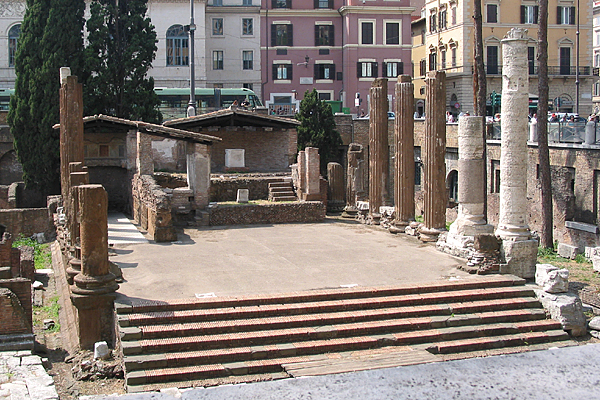

"The same dawn enshrined you, too, sister of Turnus, where the Aqua Virgo rings the Campus."
Ovid, Fasti (I.463–464)
So Ovid celebrates the feast day of Juturna, a deity of fountains, on January 11, the anniversary of the dedication of what may be her temple in the Campus Martius, Temple A in the Largo di Torre Argentina (above). Located near the Aqua Virgo that provided water to the area, it likely was built by Caius Lutatius Catulus, who celebrated a triumph in 241 BC for the Battle of the Aegates Islands, a naval victory off the west coast of Sicily that lost the island to Rome and forced an end to the First Punic War (Polybius, The Histories, I.59-62).
In defending Cluentius Habitus (against charges brought by his mother, who accused him of having murdered her husband—who, in fact, had murdered the woman's own husband and was banished after being convicted of trying to poison Cluentius, himself), Cicero comments on one of the judges who had been bribed in the earlier case, remarking on "the gilded statues which he erected in front of the temple of Juturna" (Cicero, Pro Cluentio, CI).
Notice the high platform for the altar, which likely was a response to flooding of the Campus Martius. Indeed, the Tiber had overflowed its banks just three years before the Aqua Virgo was completed in 19 BC and again six years later, this time inundating the nearby Theater of Balbus, disrupting the dedication and forcing its patron to enter the grounds by boat (Dio, Roman History, LIV.1.1, LIV.25.2).